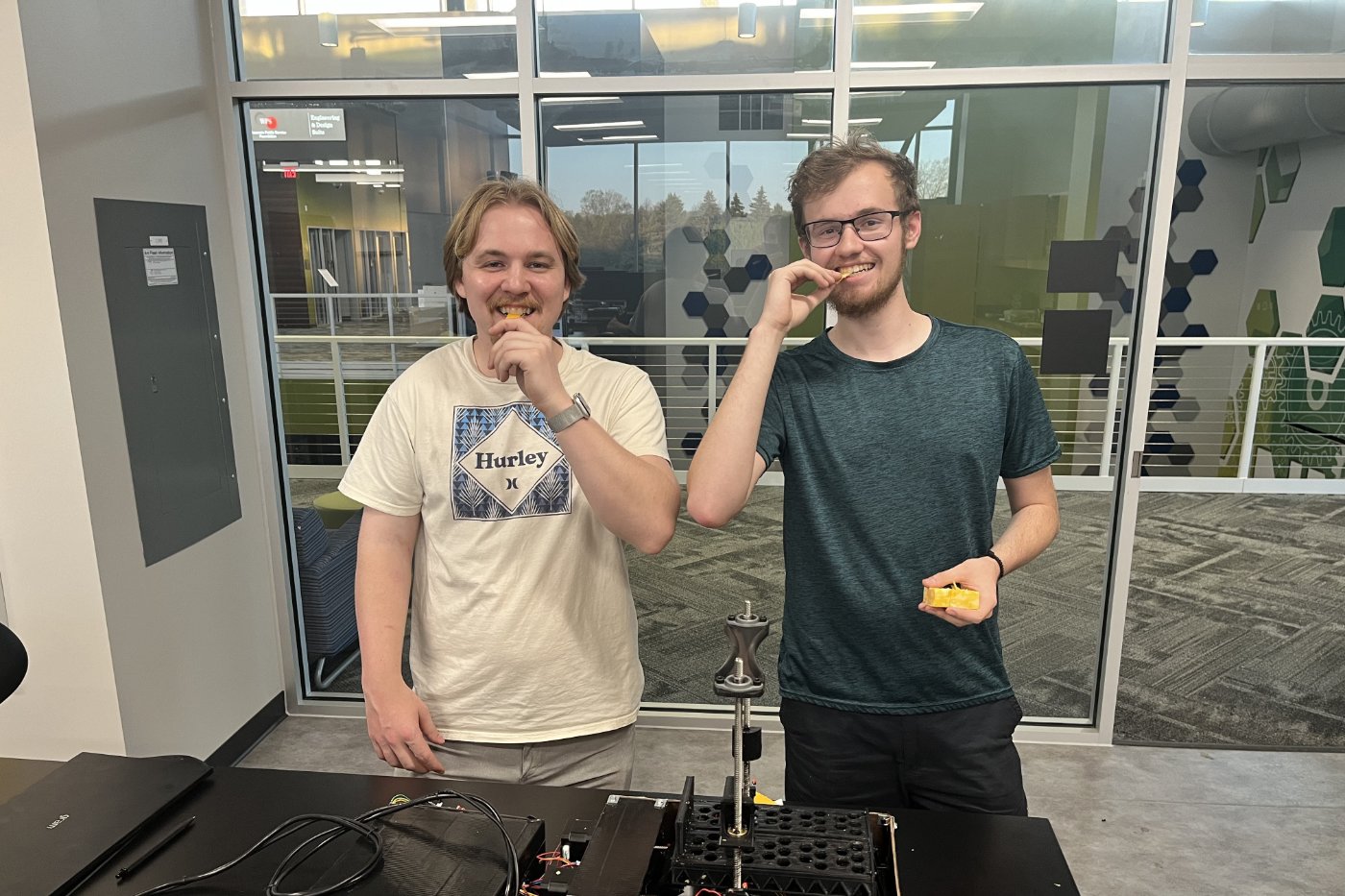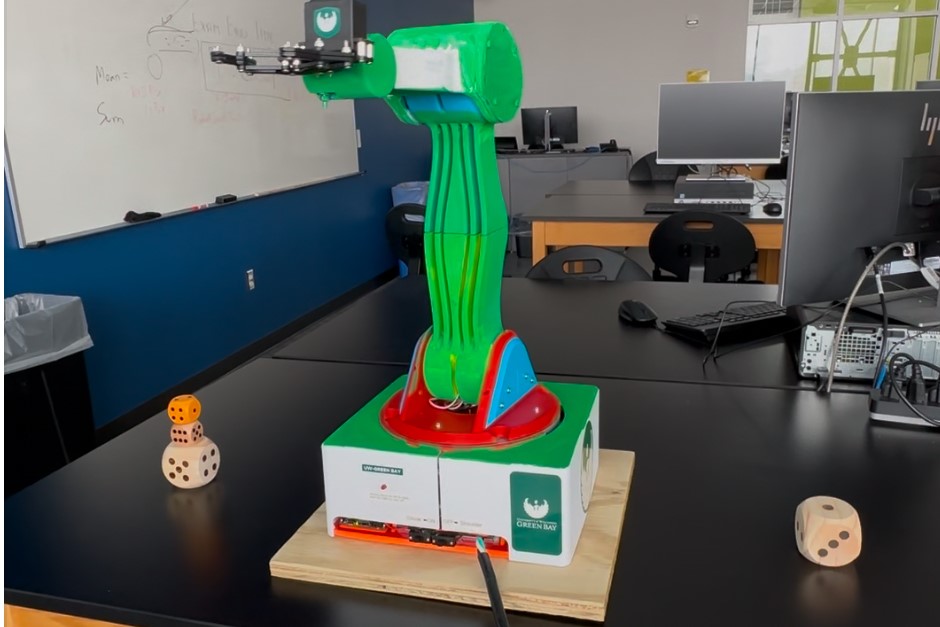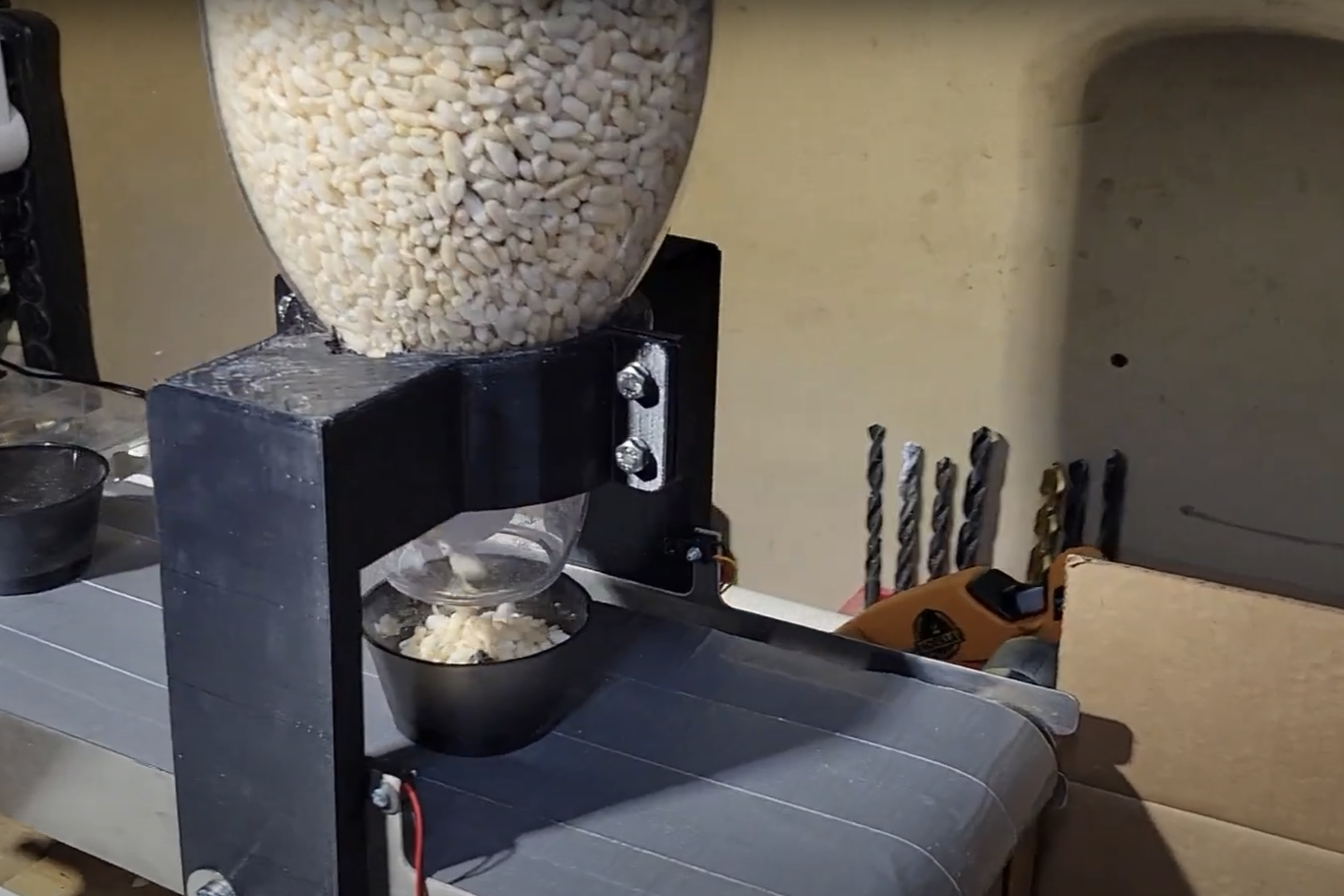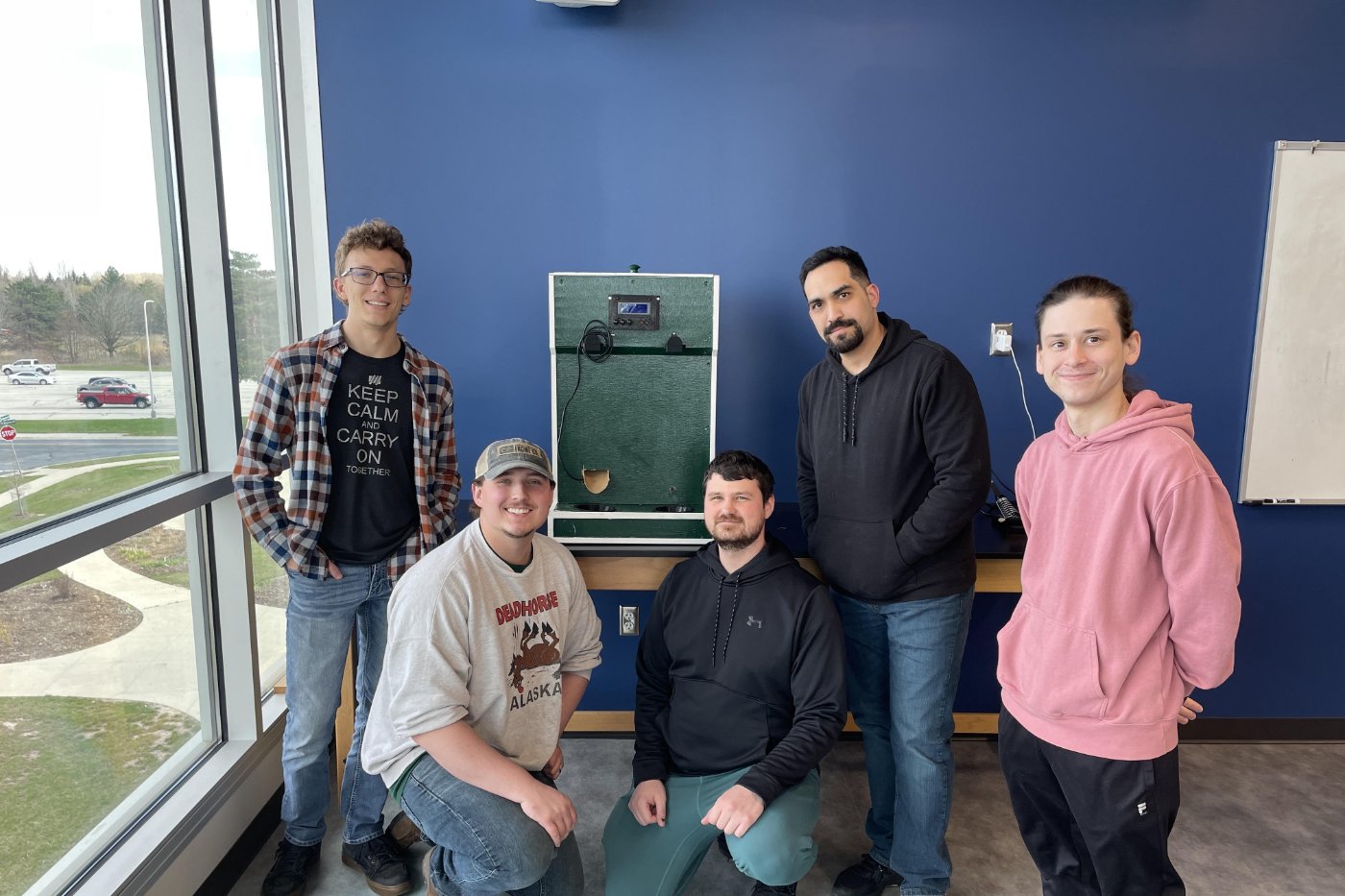Undergraduate Research & Student Projects
Explore, Create & Innovate
Fuel passion into reality by developing a class project or doing research next to a professor.
You'll have more than one opportunity to get hands-on, innovative experience in the UW-Green Bay Mechanical Engineering Program. As an undergraduate, you have opportunities to develop your own class projects or work alongside a professor on a research project. Student class projects range from parking bots to cheese cutters to a variety of dispensing systems. We can't wait to see what you will design and develop!




Undergraduate Research Opportunities
According to the National Survey of Student Engagement (NSSE) data, students who participate in research projects with faculty “broaden and deepen undergraduate learning and support a range of skill developments.” Get research experience while earning your undergraduate degree at UW-Green Bay. We have two research opportunities available to undergraduate students to work with our mechanical engineering faculty.
Developing a URDF Model
Faculty: Md Rasedul Islam
You will be creating a Unified Robot Description Format (URDF) model for a robot. The URDF model to be developed will be compatible with various robotics software platforms that support URDF files, such as MATLAB, CoppeliaSim, Gazebo and more. By the end of the project, you'll have a fully functional robot model that can be imported and utilized across different simulation and visualization tools, enhancing your understanding of robot kinematics, dynamics and simulation environments.
Position & Heading Estimation
Faculty: Md Assad Uz-Zaman
You'll explore and implement position and heading estimation using Inertial Measurement Units (IMUs). The primary goal is to develop an algorithm that calculates position, velocity, acceleration and heading in a 2D plane as the IMU moves from an initial origin. Upon successful completion of the 2D system, the project will extend to include 3D space. This hands-on experience will deepen your understanding of sensor integration, algorithm development and real-world application of inertial navigation principles.
Class Projects
Have you ever thought it's taken too long to get your coffee at your favorite coffee shop? Or worried about how your pet will get food while you are away? Or just have an idea in your head that you'd love to make a reality? You can do it in mechanical engineering class. Here is a sampling of some of the class projects in mechanical engineering.
The Charcuterie Chef (Automated Mechatronic Cheese Cutter)
Class: Mechatronics (MET390)
Creators: Jack Steinhorst & Matt Ferdon
Faculty Mentor: MD Rasedul Islam
Description: This project focuses on the design and development of an automated cheese-cutting device. Utilizing 3D printing, CAD software and industry-proven electrical components, the system ensures accuracy, speed and ease of use.
- The machine is capable of slicing various cheese block sizes with millimeter precision, featuring sensor-based automatic length detection, user-defined slice thickness and food-safe materials.
- The software is designed to be efficient, adaptable and user-friendly, making this a reliable and innovative solution for automated cheese slicing.
3 DoF Lightweight Desktop-Mount Portable Robotic Arm
Class: Senior Design Project (ME460)
Creators: Cody Leisgang, Alex Gengler, James VanderWyst & Adam Smith
Faculty Mentor: MD Rasedul Islam
Description: This 3D-printed robotic arm features an optimized component design, incorporating innovative mechanical design approaches to enhance mobility and portability. It is easy to fabricate and integrate. The robot can be controlled using a custom-designed Android app called "TheClaw," as well as via Arduino, C++ or Python.
Multi-Type Drinking Machine
Class: Mechatronics (MET390)
Creators: Jack Merkatoris & Elly Purdy
Faculty Mentor: MD Rasedul Islam
Description: Current coffee shops and bars require human labor to make several types of multi-part drinks. Human involvement in beverage preparation leads to delayed service and errors. The automatic drink dispenser in food and beverage shops can decrease service duration and frequency of errors. This reduction in time and increase in product flow will create a more efficient and productive workflow. These increases could lead to an increase in profits for a business using our system.
Smart Sorting System
Class: Mechatronics (MET390)
Creators: Cody Salzman, Mason Flicek & Andrew Tordeur
Faculty Mentor: MD Rasedul Islam
Description: The Smart Sorting System is an efficient device designed for sorting various materials based on color detection. It integrates a conveyor belt, linear actuator rejection arm and a color-detecting sensor within an electronic control system to identify and reject specific colors. The project explores the mechanical, electrical and software design, detailing system functionality, testing procedures and performance results. Additionally, it provides insights into the system workflow, wiring and mechanical components, culminating in an analysis of final outcomes and conclusions.
Auto-Sensing Pet Food Dispenser
Class: Mechatronics (MET390)
Creators: Jayson Ortiz, Samuel Van Wyk, Matthew Pasterski, Hunter Elenbaas & John Pfankuch
Faculty Mentor: MD Rasedul Islam
Description: This project focuses on the design and construction of an automatic pet food and water dispensing system. The system is designed to help busy students and employees maintain a consistent feeding schedule for their pets with minimal effort. It features automated food and water dispensing, level sensors for monitoring and an LCD display for user interaction. Owners can set specific feeding times or allow the system to dispense food as needed. The students reviewed the mechanical, electrical and programming aspects of the project, along with project results, conclusions and potential improvements for a more efficient design.
The Dispensinator (for Candy)
Class: Mechatronics (MET390)
Creators: Cody Leisgang, James VanderWyst, Nathan Passerell, Seth Beining & Aaron VanderBush
Faculty Mentor: MD Rasedul Islam
Description: The Dispensator was designed to be a conveyor that would automatically sense cups and full them as they travel down the conveyor. Additional features are green and red LEDs for conveyor on/off feedback, an LCD display for user feedback and variable conveyor speed control. This system was primarily designed to dispense items like candy or cereal.
The Parking Bot
Class: Mechatronics (MET390)
Creators: Ty Zawojski, Caio Felipe, Hunter Syers, Raymond Shaw & Noah Meyers
Faculty Mentor: MD Rasedul Islam
Description: This goal of this project was to make an algorithm for a mobile robot to make it a self-driving Parking Bot that can go down a lane of parking spaces and park into the first open spot available, making sure that it parks in between the parking lines and not hitting anything on the side or in front of it.

Have Questions?
Want to get involved with research and class projects? Get in touch with your professors and learn how you can take advantage of our opportunities to help pave your future.